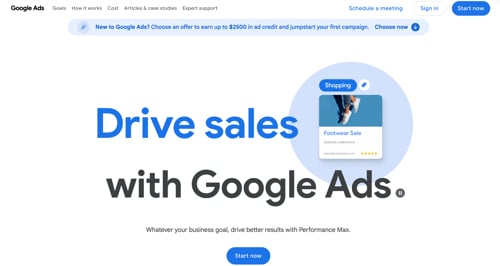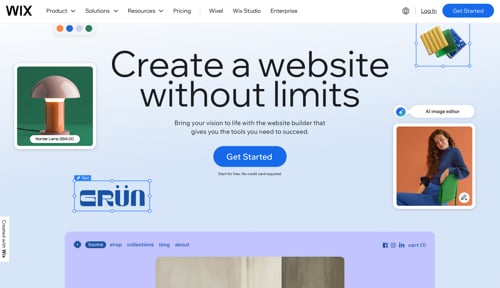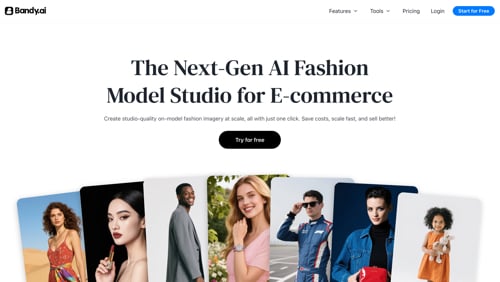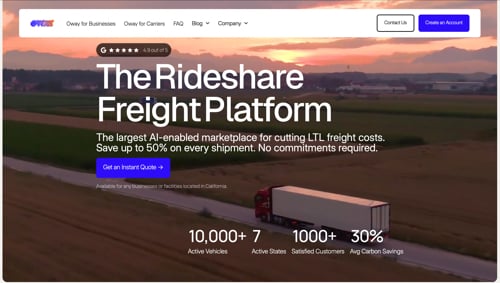This week’s rundown of new products and services from vendors of ecommerce merchants includes AI-generated product images, fulfillment, social commerce, digital advertising, affiliate marketing, less-than-truckload shipping, autonomous ground deliveries, and more.
Got an ecommerce product release? Email releases@practicalecommerce.com.
New Tools for Merchants
Google Ads launches Asset Studio beta. Google Ads has released, in beta, Asset Studio, a built-in creative hub streamlining how advertisers produce and scale ad assets with AI. Asset Studio appears in Google Ads under “Tools” and provides native creative features directly in the Ads interface. Advertisers can use it to generate images with text prompts, create lifestyle product visuals, edit photos, bulk edit assets at scale, create and trim ad-ready videos, and add voice-overs for video and audio ads.
Shopify announces built-in fulfillment capabilities. Shopify is launching partnerships with the largest global carriers, introducing bulk order processing, and streamlining shipping workflows, all of which can be managed directly in the Shopify admin. Carrier partnerships include DHL, USPS, UPS, FedEx, Canada Post, Purolator, Royal Mail, Australia Post, and Flexport. For international shipping, merchants can collect duties and taxes at checkout and purchase Delivered Duty Paid labels from DHL Express and DHL eCommerce. New bulk order processing accommodates up to 250 orders simultaneously.
Walmart announces new seller tools and resources at Marketplace Seller Summit. At its Let’s Grow! Seller Summit, Walmart announced a suite of new tools and initiatives. The Seller Advisors Program provides feedback and insights to help foster impactful solutions. An AI-powered listing tool helps with setup for single and bulk items, while Smart Assistant provides support. Sellers who self-fulfill can now automate delivery promises by region. The Brand Portal safeguards sellers and identifies fraudulent activity with a heightened focus on product authenticity.
Wix integrates with Pinterest for social commerce. Wix merchants can now promote and sell their products directly on Pinterest, the visual search and discovery network. By establishing a connection between their Pinterest account and their Wix site, merchants can sync their catalogs and run targeted ads on Pinterest. These ads drive shoppers back to the merchant’s Wix site for a streamlined checkout experience.
Domaine launches AI commerce suite for Shopify. Domaine Worldwide, a Shopify-focused design and development firm, has introduced AI Commerce Suite, combining large language model technology for automated product copy, imagery, and short-form video with adaptive search engine optimization and geo-targeting that respond in real-time to trending keywords and local demand. The new Suite delivers predictive search, personalized recommendations, and dynamic content to convert visitors into customers. Users can boost visibility in emerging search channels, guide shoppers to relevant products, and reduce time from idea to campaign launch, according to Domaine.
TestSquared launches free AffiliateTor directory for affiliate programs. TestSquared, an ecommerce tool developer, has launched AffiliateTor, a free directory to simplify how affiliates discover and connect with opportunities. Brands can showcase their programs to a network of potential partners and reach affiliates searching for programs. The directory is organized by industry niche.
Bandy AI launches to generate ecommerce product imagery with AI models. Bandy AI has launched its platform to help ecommerce stores and apparel brands create photorealistic on-model fashion images. According to Bandy AI, the platform enables brands to generate quality images of clothing and accessories on diverse AI models, with creative control over poses, backgrounds, and camera angles, all rendered within minutes. Bandy AI features a virtual try-on tool that digitally dresses photorealistic AI models with apparel and accessories.
Visa expands Click to Pay across Asia Pacific for enhanced ecommerce checkout. Visa has announced the expansion of Click to Pay across Asia Pacific through strategic partnerships with payment enablers 2C2P, Adyen, AsiaPay, and Worldpay. According to Visa, Click to Pay offers a seamless and secure online checkout experience, with biometric authentication through payment passkeys for enhanced security. By allowing customers to retrieve their saved, tokenized payment details using a mobile number or email alias, Click to Pay eliminates the need to enter card information manually.
BestBuy.com launches marketplace. Best Buy is launching a marketplace for third-party merchants to sell on BestBuy.com and through the app. According to the company, customers can shop from hundreds of brands and from categories such as seasonal décor, automotive tech, office and home, and movies and music. Best Buy says it will soon introduce licensed sports merchandise. Customers can return marketplace products at their local Best Buy store, in addition to shipping them to the seller.
Netcore Cloud integrates with Shopify for real-time ecommerce engagement. Netcore Cloud, a marketing technology company, has launched its plugin on the Shopify platform. Users can (i) access both Shopify and Netcore data in one place for improved segmentation and deeper customer understanding, (ii) leverage Shopify purchase history, product views, and browsing patterns to create campaigns that reflect individual customer interests, (iii) set up event-triggered journeys, from abandoned cart nudges to post-purchase sequences, and (iv) deliver highly contextual outreach across email, SMS, and WhatsApp, all according to Netcore Cloud.
Just Eat Takeaway teams with Rivr to pilot robot food delivery in Europe. Just Eat Takeaway.com, an on-demand delivery service, is partnering with robotics company Rivr to pilot doorstep delivery with autonomous ground robots. The Rivr ground robot combines wheels for efficient travel with legs for climbing stairs and curbs. Functioning with physical AI, the robot avoids obstacles, vehicles, and pedestrians. The Rivr robot will initially deliver food orders in Zurich, with plans to expand to other European cities later this year, and potentially into retail and convenience stores.
Pinterest debuts Thrift Shop, targeting Gen Zs. Pinterest has introduced Thrift Shop, a shopping space for thrift lovers, particularly Gen Zs. According to Pinterest, Gen Zs (ages mid-teens to late 20s) now account for more than 50% of Pinterest users; searches for “dream thrift finds” have skyrocketed by 550% amongst that cohort, while searches for “vintage fall aesthetic” are up 1,074%. The Thrift Shop will launch in September, enabling users to browse and shop secondhand finds directly on Pinterest.
DoorDash expands its Commerce Platform to restaurants. DoorDash has expanded its Commerce Platform with tools to help restaurants grow direct sales and deepen customer relationships. Using menu, branding, and images already on DoorDash, restaurants can instantly launch a search-engine-optimized website. Built-in customer management tools allow restaurants to automate, segment, and personalize email and SMS campaigns. The loyalty program rewards guests whether they order from a restaurant’s own app or website, the DoorDash Marketplace, or in-store, according to DoorDash.
TinyFish launches enterprise web agent platform. TinyFish, an enterprise web agent infrastructure provider, has launched with $47 million in funding (led by Iconiq) to transform complex business operations. TinyFish agents execute complete workflows mapped to measurable business outcomes. For ecommerce enterprises, TinyFish’s web agents enable brands to track competitor pricing, monitor inventory shifts, and capture promotional data across thousands of retail sites simultaneously. The company states it will use the funds for continued innovation.
Oway raises $4 million for AI-enabled ride-share freight platform. Oway, a San Francisco-based startup backed by Y Combinator and General Catalyst, has raised $4 million in a seed round to build a decentralized “Uber for freight” delivery platform. Using AI to help find and match cargo with empty trailer space and a convenient destination, along with automating standard shipping and insurance documentation, Oway seeks to reduce shipping costs by 50%. Ride-share cargo is made possible by electronic logging devices installed on long-haul trucks.









